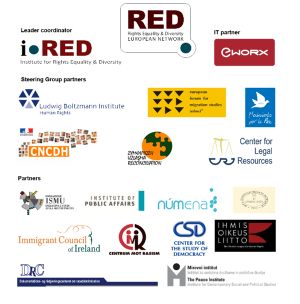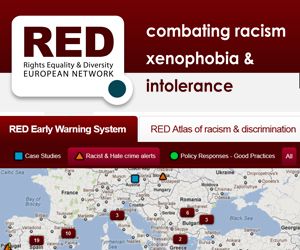RED System Launch in France
The Centre for Studies on discrimination, racism and antisemitism and the RED Network Combating Racism and Xenophobia announces the public launch of the RED Portal on 12th April 2012 in Paris. Following the Portal’s official launch in Brussels, the RED Portal and the Early Warning System and the Atlas of Racism, Discrimination and Equality will be presented to representatives of state institutions and non-governmental organisations working in the area of fight against discrimination and countering racism and hate crime. The event will take place at the French National Consultative Commission on Human Rights headquarters (35 rue Saint-Dominique Paris 75007) at 11.00 a.m.
____________________________________________________________
The Centre for Studies on discrimination, racism and anti-Semitism organized the public launch of the RED Portal on 12th April 2012 in Paris at the French National Consultative Commission on Human Rights headquarters (35 rue Saint-Dominique Paris 75007) at 11.00 a.m. The representatives of the French Human Rights Defender and non-governmental organisations working in the area of fight against discrimination and countering racism and hate crime (SOS Racism, International League against racism and anti-Semitism, French Confederation of Christian Workers, Federation IFAFE) took part in this conference. The RED Portal including the Early Warning System and the Atlas of Racism, Discrimination and Equality as tools to report racist and hate crimes and discrimination situations and incidents, as well as positive initiatives, policy responses and case studies were presented to participants. The principles of the Portal’s functioning were explained. The RED indicators ranging from qualitative to quantitative, from legal to socio-legal and factual were shown. The participants highlighted the importance of this independent tool providing a birds’ eye overview and a comparative insight of the situation in the described area in 17 EU Member States. They were interested in the enlargement of the Portal scope to the non-EU countries and in its permanent updating, as well as in its accessibility in the national language.


